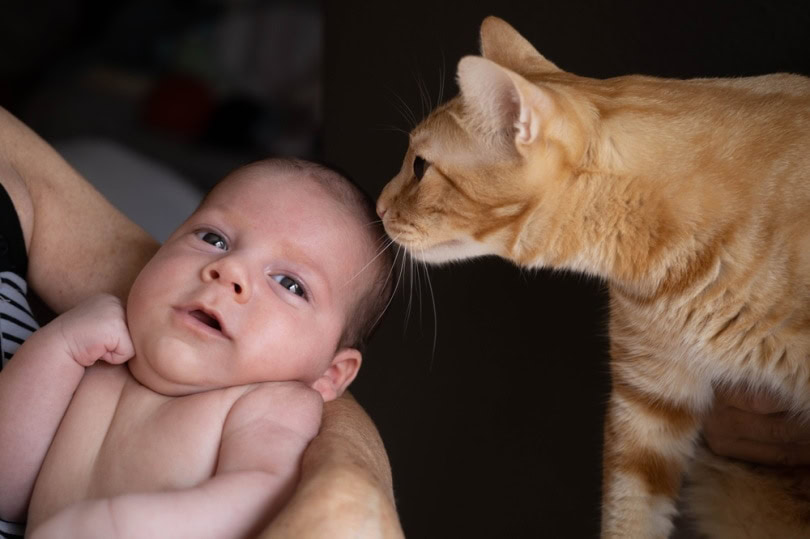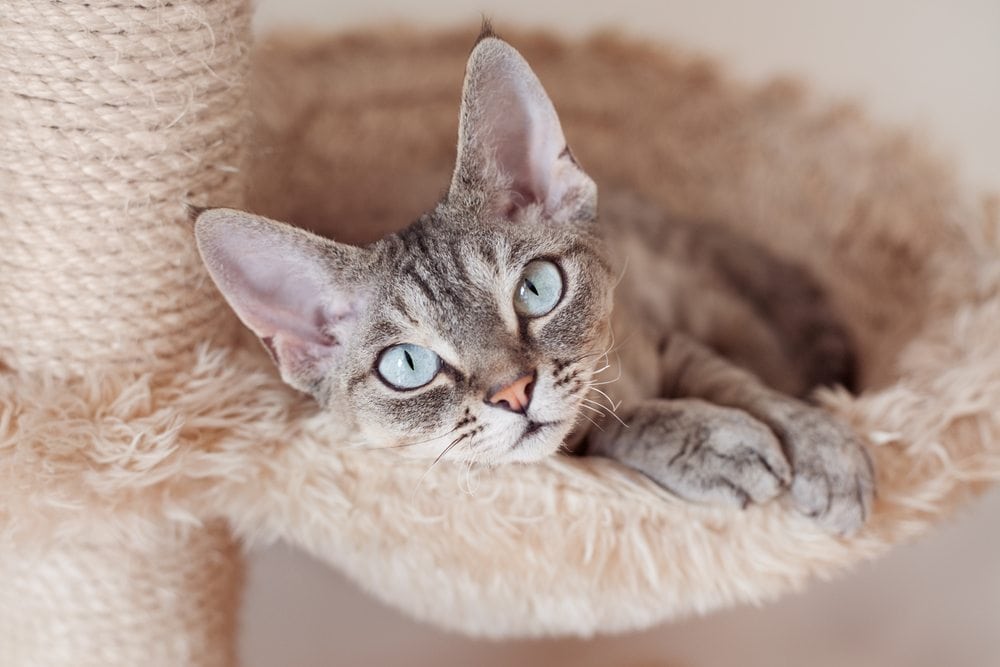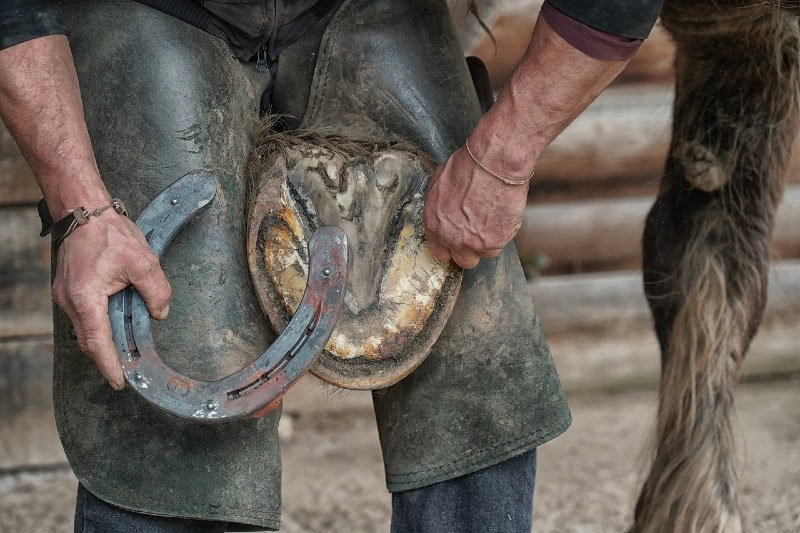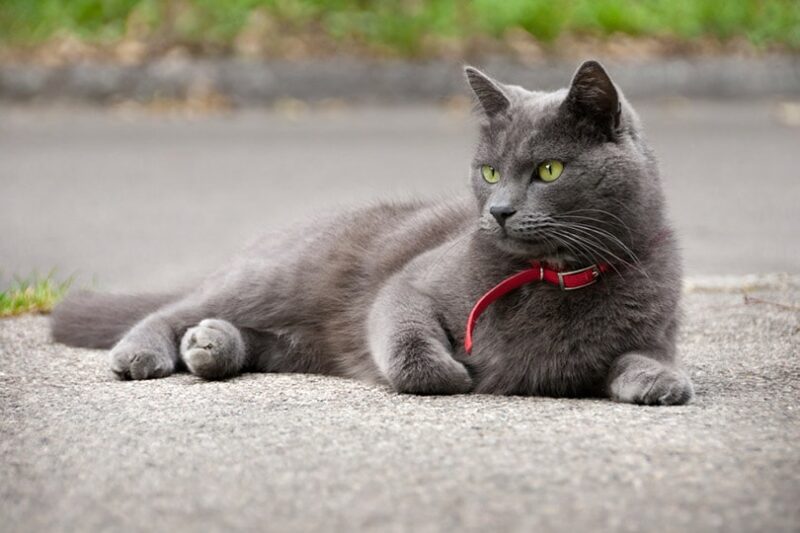VET APPROVED

The information is current and up-to-date in accordance with the latest veterinarian research.
Learn more »Cats and humans have a long history of cohabitation. This relationship has become so close that cats are often seen as part of the family. But let’s say you bring home a new baby. Does your cat know what a human baby is? Most likely not. However, your cat may recognize a baby as a new member of the household and be curious about it, even if they don’t recognize it as a baby per se. Let’s learn more.
Click to Skip Ahead

The Ability to Recognize Babies
Cats likely lack the ability to recognize a baby as a human offspring, but they will certainly become aware of the new arrival very quickly, due to the different smells and sounds associated with a newborn and the necessary changes in the home to accommodate a baby.
Cats rely mainly on their sense of smell to identify objects, people, or animals, alongside their sight and hearing. They will probably be aware that a new living creature is now a part of their household, but whether they will realize it’s one of yours remains a question.
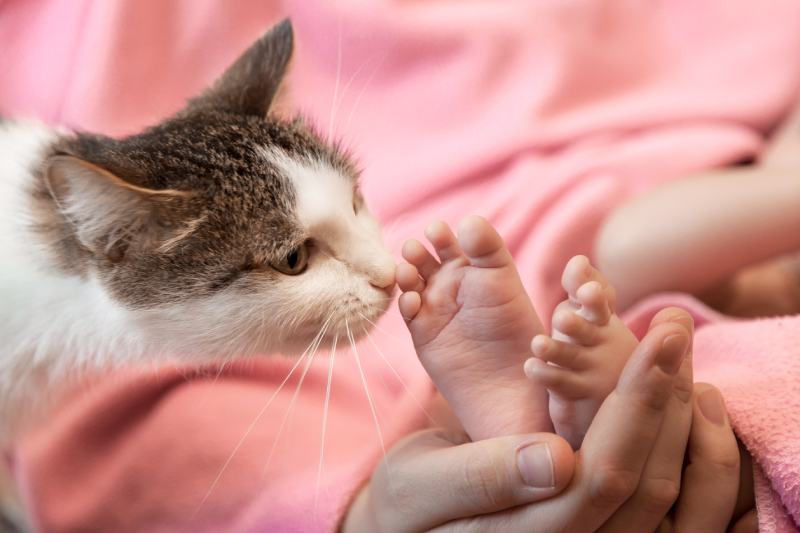
The Role of Scents and Sight
Cats are able to recognize people by their scent, but babies’ scents are still new and foreign to them. Additionally, alongside their highly developed sense of smell, cats will rely on their sight in order to observe their environment, mainly detecting sudden movements that may indicate presence of prey.
Babies look different from adults due to their smaller size and different facial features, but cats are unlikely to be able to recognize or even acknowledge these differences. However, they may be more careful and reserved around this strange new living thing just because their natural cautious but curious personalities take over—particularly when paired with sudden loud noises babies make.
They will become more familiar and accepting of the baby as they get used to their smell and a new routine and know that it belongs in the household just like the other people do.
Can Cats and Babies Coexist Peacefully?
They most certainly can! Though cats may not understand what a baby is, they can still form positive relationships with babies under proper supervision. Some cats may choose to ignore or purposefully avoid the child due to the strange and loud noise they associate with it, while others may want to spend time close to the baby, as it also means being close to their humans as well, if they are quite bonded with their owners.
However, it’s important to always supervise your cat around the baby, as the baby’s sudden feet and hand movements may stimulate the cat’s stalking and pouncing instinct, which could lead to injuries.
Myths and Precautions About Cats and Babies
There are many myths about cats and babies, including that cats may suck the breath from them. Of course, this is not true but there are several important precautions and risks that any new parents should be mindful of.
One of them is your cat snuggling up on top of the baby which could certainly cause injuries or prevent the baby from breathing properly. Otherwise, the newborn’s feet and hands may appear quite interesting to the cat, as they move suddenly and unexpectedly. This could make the cat try and pounce on the baby and even scratch or bite them.
Finally, as babies start to crawl and become more active, they may try to grab the cat by the tail which could understandably cause the cat to scratch them. With constant supervision and gentle interaction as the child grows up and learns how to behave around the feline, however, cats can learn to be gentle around babies and create positive relationships with them.
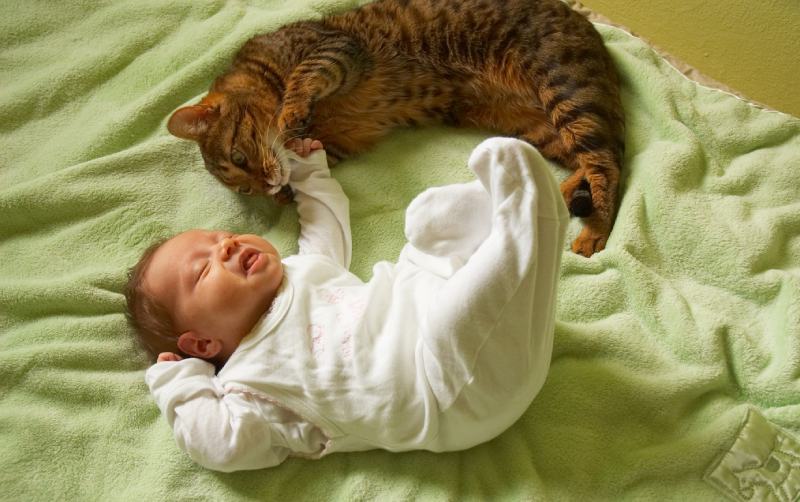
Do Cats Know When Their Owners Are Pregnant?
It is unlikely that cats know their owners are pregnant, as cats do not understand the concept of pregnancy. Cats may also be unable to detect any physical changes in their owners, as they rely mainly on their sense of smell.
The only difference they may notice is changes in scent, as the hormones in a woman’s body that are produced at higher levels during pregnancy may cause the natural scent that your cat is familiar with to change.
A Word About Owning Cats During Pregnancy
Though cats may not recognize their owners’ pregnancy, they can still be a great companion during this time. With proper supervision, cats can safely coexist with pregnant women and babies. Additionally, cats can provide emotional support to their owners during this special time in life.
However, if pregnant, make sure to always use gloves or ideally dedicate the task of cleaning out the litter to another family member, as pregnant women should avoid handling the litter and should maintain a high level of hand hygiene.
This is in order to avoid contact with any potential gastrointestinal parasites and Toxoplasma that cats may carry, although the risk of infection also exists from gardening or eating raw meat and unwashed fruit and veg.

Frequently Asked Questions (FAQ)
Q: Does having a baby stress out a cat?
A: It depends. Cats may feel a bit overwhelmed or stressed when a baby is first introduced to the home, as they are not used to these new scents and sounds, and their routine may change. Over time though, cats can learn to adjust as they get used to the new presence in the home.
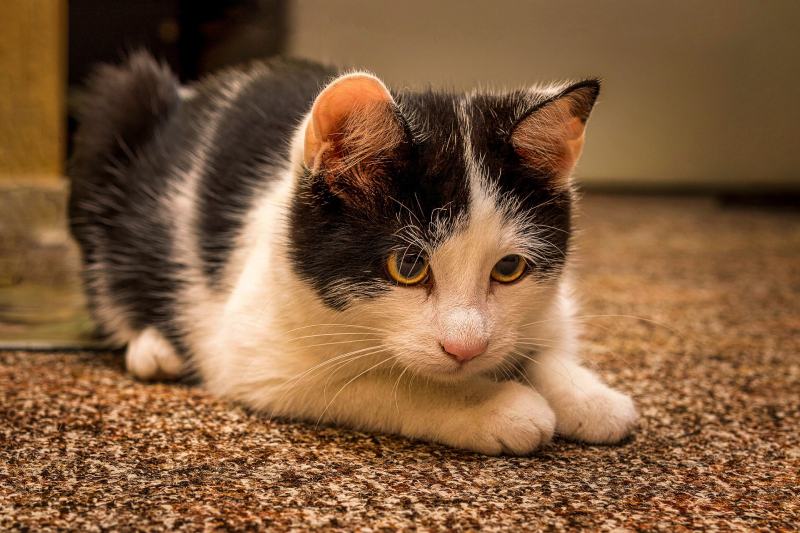
Q: How can I help soothe a stressed-out cat?
A: Create a safe and comfortable space for your cat away from the baby, where they can be undisturbed. Maintain their routine as much as possible, ensure plenty of physical exercise, interactive playtime, and an enriched and stimulating environment to prevent boredom and frustration.
Don’t forget to spend some quality time with your cat each day. Minimize visitors and noise as much as possible.
Q: How can I help my cat adjust to a baby in the home?
A: Make sure you introduce your cat gradually to the baby, providing plenty of positive reinforcement. Give your cat their own special place to retreat and provide them with extra attention and playtime. Keep their routine as consistent as possible. Most importantly, always supervise interactions between cats and babies.
Another very important aspect is to give your cat enough time to adjust to their new living circumstances, by slowly preparing them with subtle changes even before the baby arrives. Consider using an appeasing pheromone diffuser in the home, as well as getting new furniture and clothes for the baby well ahead of time. Speak to your vet if your cat is particularly anxious or is not coping well with a newborn in the home.
Q: Are there any safety measures I should take when introducing a cat to a baby?
A: Always supervise interactions between cats and babies, as both cats and kittens may bite or scratch out of curiosity or as part of playing. Additionally, keep the litter box well away from areas that the baby frequents. Ensure the litter box is cleaned out daily and that the person doing it is maintaining a high level of hand hygiene.

Q: Are there any benefits to having a cat in the home with a baby?
A: Yes. Having a cat in the home can help babies learn about animals and teach them kindness. Additionally, cats can provide companionship and comfort to children as they grow older, as well as teach responsibility. Finally, having cats can also reduce stress levels in both children and adults.
Q: Is there anything else I should know about cats and babies?
A: Be sure to provide your cat with plenty of love, attention, and kindness to help them adjust to the presence of a baby in their home. Additionally, be sure to teach your children how to interact safely and respectfully with cats so that everyone can benefit from positive relationships.

Conclusion
Though cats may not recognize a baby as a human offspring as such, they can still form positive relationships with them. With proper and continuous supervision, cats and babies can live in harmony together. Cats rely mainly on their sense of smell and sight to identify and interact with objects and people in their environment, so the differences between a baby and an adult may be too subtle for cats to notice. But over time and with gradual adjustments, cats will learn to coexist with a baby peacefully.
Featured Image Credit: Julieta Fotografia, Shutterstock
